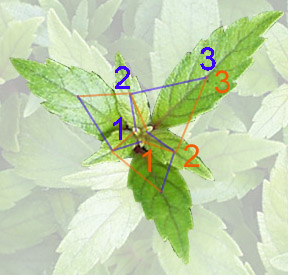
one may look back with longing at the Age of Reason, and feel that perhaps the couplets of Alexander Pope:
Spin all your cobwebs o'er the eye of day
The Muse's wing shall brush you all away.
were a trifle more elegant than those of Dizzee Rascal:
I gaze quite a lot, in fact I gaze always
And if I blaze, then I gaze always my days
It may even be the case that civilisation just suddenly seems much too much and nothing appeals more than a chance to sit round a camp-fire and gnaw at the leg of a mammoth.
I get all that. I really do.
But what do we have that none of those times had?
Something simple, free, and at the same time hugely satisfying?
The word splat.
The best things in life, eh?
Word To Use Today: splat. This word wasn't coined until the 1800s. As well as being a lovely wet slapping sound a splat is also a long flat piece of wood, especially one that makes the centre strut of the back of a chair.

 By Anders Sandberg from Oxford, UK - PhyllotaxisUploaded by Jacopo Werther, CC BY 2.0, https://commons.wikimedia.org/w/index.php?curid=25059305
By Anders Sandberg from Oxford, UK - PhyllotaxisUploaded by Jacopo Werther, CC BY 2.0, https://commons.wikimedia.org/w/index.php?curid=25059305 photo by
photo by  photo and diagram by
photo and diagram by 









